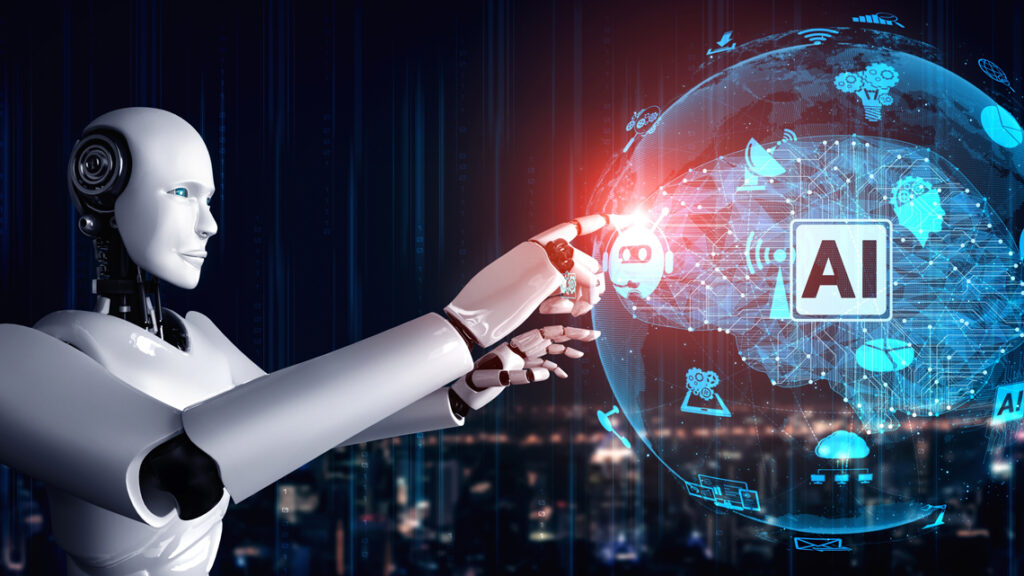Subtotal $0.00

Artificial Intelligence (AI) is transforming many aspects of our lives, and the job market is no exception. While AI offers incredible opportunities, it also brings some challenges. Let’s explore how AI is affecting jobs, the potential benefits, and the hurdles we might face.
How AI is Changing the Job Market
AI refers to computer systems designed to perform tasks that typically require human intelligence. These tasks include things like understanding natural language, recognizing patterns, and making decisions. As AI technology improves, it’s increasingly being used in various industries, which is reshaping the job market in several ways.
Opportunities Created by AI
- New Job Roles and Industries
AI isn’t just about replacing jobs; it’s also creating new ones. For instance, there’s a growing demand for roles like AI specialists, data scientists, and machine learning engineers. These positions require skills in programming, data analysis, and understanding AI algorithms.
Moreover, industries that didn’t previously exist are emerging as a result of AI advancements. Think of fields like virtual reality development, automated driving, and AI-driven health tech. These new sectors are offering fresh career opportunities. - Enhanced Productivity
AI can handle repetitive and mundane tasks more efficiently than humans. For example, chatbots can manage customer service inquiries, and AI-powered software can automate data entry. By taking over these routine tasks, AI allows human workers to focus on more complex and creative aspects of their jobs.
In many industries, AI tools are being used to boost productivity. For instance, AI in agriculture can analyze soil conditions and predict crop yields, helping farmers make better decisions and improve their output. - Personalized Services
AI enables businesses to offer more personalized services to their customers. For instance, recommendation engines on platforms like Netflix or Amazon suggest products or movies based on previous preferences. This level of personalization can create new opportunities in marketing, customer experience, and content creation.
Challenges Brought by AI
- Job Displacement
One of the biggest concerns with AI is that it may lead to job displacement. As AI systems become capable of performing tasks traditionally done by humans, some roles may become obsolete. For example, automated checkout systems in retail stores might reduce the need for cashiers.
The impact of job displacement varies by industry and job type. While some positions might disappear, others will evolve or require new skill sets. It’s important for workers to adapt and reskill to stay relevant in the changing job market. - Skill Gaps
As AI technology advances, there’s a growing demand for specific skills related to AI and data science. However, not everyone has these skills, leading to a gap between the available workforce and the needs of the job market. This skill gap can make it challenging for people to find new employment or advance in their careers.
To address this issue, there’s a need for educational programs and training initiatives that focus on AI and related technologies. Upskilling and reskilling opportunities can help workers transition to new roles and stay competitive. - Economic Inequality
The benefits of AI may not be evenly distributed. Companies and individuals who can afford to invest in AI technology might gain a competitive edge, while others may fall behind. This can widen the gap between wealthy and less affluent regions or businesses.
Addressing economic inequality requires thoughtful policies and initiatives to ensure that the benefits of AI are shared more equitably. This might involve supporting small businesses, investing in education, and creating safety nets for those affected by job displacement.
Adapting to the Changing Job Market
To navigate the evolving job market influenced by AI, both individuals and organisations need to adapt. Here are some strategies to consider:
- Lifelong Learning
Embracing lifelong learning is crucial. Whether through formal education, online courses, or on-the-job training, continuously updating your skills can help you stay relevant. Focus on developing skills that complement AI, such as creativity, problem-solving, and emotional intelligence. - Flexibility and Adaptability
Being flexible and open to change can help you adapt to new job roles and industries. Embrace the opportunities that AI brings and be willing to explore different career paths or industries as the job market evolves. - Policy and Support
Governments and organizations play a key role in managing the impact of AI on jobs. They can support workers through policies that encourage reskilling, provide unemployment benefits, and promote equitable access to AI technologies.
In Conclusion
AI is having a profound impact on the job market, offering both opportunities and challenges. While it’s creating new roles and increasing productivity, it’s also leading to job displacement and skill gaps. By staying informed and adaptable, and by fostering supportive policies, we can navigate the changes and ensure that the benefits of AI are widely shared.
As we move forward, it’s important to embrace the positive aspects of AI while addressing its challenges head-on. With the right approach, we can harness the power of AI to create a more innovative and inclusive job market.
Enjoy 1 Week of Free Social Media Services!
Ready to see your brand shine online? Try our top-notch social media management free for a week and watch the magic unfold. Don’t wait—see how we can boost your presence and connect with your audience. Grab your free week today!
